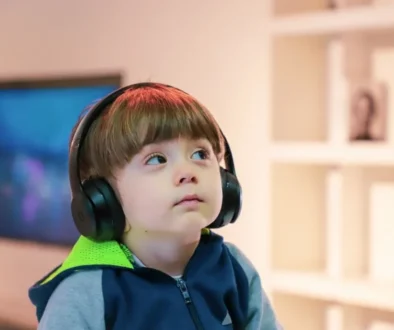What Tests Are Done to Diagnose Autism? Autism Diagnosis Explained
When it comes to the health of your children, nothing else is more important. If you suspect that your child may be showing symptoms related to autism, you may be a little fearful of what that means. Knowing what to do to get the proper diagnosis is key.
So, what tests are done to diagnose autism? This is the first thing to know and your next steps will make getting the correct diagnosis a little easier. Here’s what you should know, so keep reading!
What Tests Are Done to Diagnose Autism?
The first point of contact for getting an autism diagnosis is your child’s pediatrician. It is important to maintain well visits so that the doctor can do evaluations to make sure markers are where they should be. These are mostly performed by doing a physical exam on the child and asking the parents questions.
Some things you may be asked about could include family history, age of smiling or facial expressions for the child, and sounds the child may make that you might refer to as “baby talk.” You may also be asked about your child’s ability to maintain eye contact and if he is easily annoyed most of the time.
Referral to Specialists
If the pediatrician feels your child may need further testing you will go to a team of specialists. Sometimes this can be overwhelming but let it put your fears at rest instead. Specialists are highly trained and know parents want their children to be successful in life.
We are here to help your child have a positive experience. Receiving a diagnosis of autism can seem like such a negative thing but we can help!
Currently, there is no one specific test to check for autism spectrum disorder(ASD). There are observational tests that will show how your child plays and communicates with others. Sometimes he may be asked to perform certain tasks to see how well he can follow directions.
Tests to Rule Out Autism
It is important to know that other problems could present as signs of autism. Your doctor may perform blood tests and order hearing tests and genetic tests. These are all done to make sure the symptoms your child has are not due to a physical problem that has nothing to do with autism.
Receiving the Diagnosis
After the above tests have come back, then what happens? What are your next steps as a parent? It may seem like a confusing and frightening time right now. We get it and we are ready to help you through this process.
Right now it is easier than ever to make an appointment. We know it can be hard to get into a regular office appointment and if your child has been diagnosed with autism that can make waiting in a lobby even harder. We have telemedicine appointments open for your convenience.
Right now telemedicine can be a useful tool in diagnosing autism. Many parents do not want to take their children out because of the COVID-19 pandemic. Using telemedicine can be an easier way to get tested.
What to Do Next
We know receiving a diagnosis of Autism is not easy. That is not what any parent wants to hear, but there are more resources available today than ever before. We are here to help you through this process and show you easier ways to help your child.
We will have recommendations for you and ideas that may help you move forward. We know it won’t always be easy but we can create a plan together! Autism may seem like an awful and scary diagnosis but it does not have to be.
We have a team of specialists who are educated and experienced. We can help you learn how to move forward.
Find the Right Partners
One of the most important aspects of learning your child has autism is to then make a plan. You will want to find the right partners to help you during this journey. You want specialists who are knowledgeable and know how to work with children who have autism.
You don’t want to place the care of your child with just anyone. That is why it is so important to find specialists who genuinely want to help you and your child.
The right partners will consider every decision with your child in mind. Many children who are diagnosed with autism are still high functioning, so you want to get the best help you can.
Parents are the best teachers. They are also the most observant. When something is wrong, parents know.
If you suspect your child may have autism, you could know before the doctor does! Never hesitate to have your child tested if you feel anything is out of normal range.
Be Patient With Yourself
Getting all the right tests is important. So is knowing what to do after that. Many parents feel hopeful when their child receives an autism diagnosis.
This does not have to be the case anymore. There are many tests to check for autism and we are learning more about it all the time and resources are much more abundant than in previous years.
Now with telemedicine being covered by many insurance companies, it is even easier to have appointments for your child. This makes it much more convenient than an office setting. Sometimes children with autism get easily agitated and being in a doctor’s office can be scary. Telemedicine is a great first for those children.
Why Testing Is Important
It is important to have your child tested if you or your doctor suspect autism. If the tests show signs of autism you can learn how to thrive with this diagnosis. It is not the end of the world.
Now that you know what tests are done to diagnose autism, you have more power over your child’s future.
You do need to know whether or not your child has autism so you can know how to relate to him and how to teach him. Children with autism may learn differently from other children but they still learn.
Do not give up. There is hope. Call us and let us tell you how we can help!



